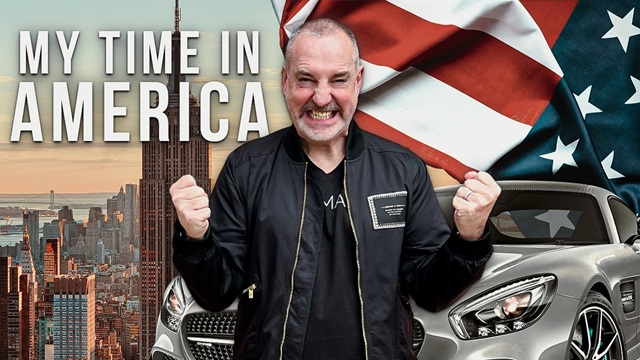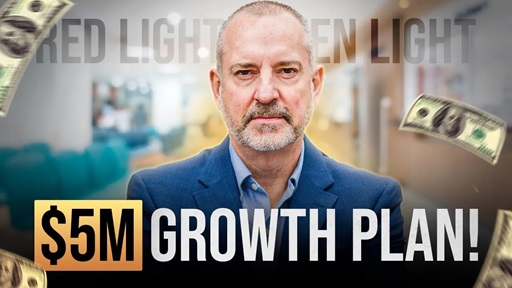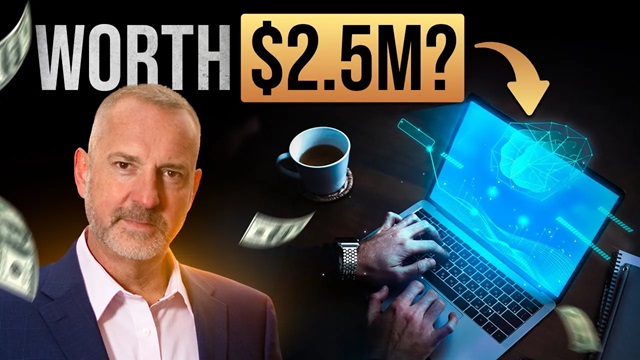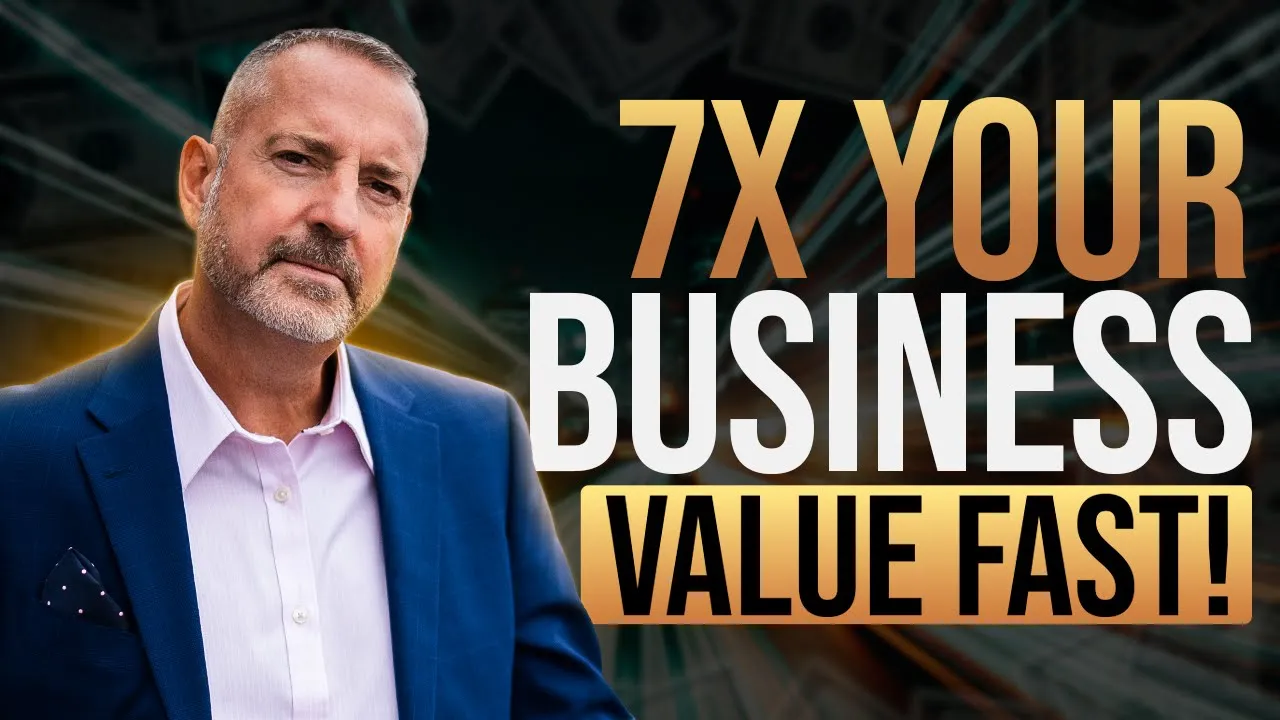Carl Allen dives into a hot topic many aspiring dealmakers are curious about: whether buying an Amazon business is a smart strategy. Speaking candidly from his car en route to Starbucks, Carl breaks down the key differences between selling on Amazon versus using Amazon for fulfillment. While he’s a fan of Amazon’s FBA (Fulfilled by Amazon) model for handling logistics, he warns against relying solely on Amazon as a sales channel. Why? Because when you sell through Amazon, you don’t actually own the customer relationship—Amazon does. That lack of control, combined with the risk of Amazon launching competing products, makes it a risky game to play if you’re depending entirely on their platform.
Carl emphasizes the importance of diversification, advising that no more than 25% of your e-commerce sales should come through Amazon. The rest should be driven through platforms like Shopify, Etsy, or other independent storefronts where you can control the brand, customer experience, and remarketing opportunities. He also touches on how third-party logistics providers can take care of the fulfillment side, allowing entrepreneurs to scale without getting bogged down in operations. Wrapping up with his signature humor and energy, Carl reminds viewers that while Amazon may seem attractive on the surface, smart dealmakers play the long game—and that means building redundancy and control into their business model.
Full Transcript:
A lot of you guys are asking me, is it a really good idea, is it a really good strategy to buy an Amazon business? Dealmakers, what’s up?
My vision is to complete late and utterly disrupt the market for buying and selling small businesses all over the world. Hey, guys. Karl Malan. Hope all is well. I am back in the car doing some videos for you guys.
Really appreciate it when you, you hit like and subscribe on the YouTube channel, and then you hit me up in the comments there with request for new videos. So I got a couple of really cool videos for you today on my way to Starbucks and back. So I’ve just dropped my son off at school. He couldn’t get his contact lenses in this morning, so he missed the school bus which picks him up from his village.
But, you know, me always looking to help. So I thought, you know what I’ll do? I’ll run you in school. I will, do a couple of videos for my YouTube family.
Shout out to you guys, and then, I can go to Starbucks, which is amazing. So one of the questions that you’ve asked me is because you you guys know I do a lot of ecom deals. Right? So I’m buying lots and lots of ecom businesses.
And a lot of you guys are asking me, is it a really good idea? Is it a really good strategy to buy an Amazon business? So when we talk about Amazon businesses, these are ecom businesses that are leveraging Amazon’s platform to both sell and also to do fulfillment. So there’s two very, very specific differences there that I wanna be absolute clear on.
So I’m not a huge fan of businesses that sell on Amazon. I am a huge fan of businesses that fulfill on Amazon because if you have an econ business, obviously, there’s, there’s three things you need to do when you run an econ business. Number one, you gotta go and source products from somewhere, and you you gotta store them. Number two is you’ve gotta go out and get customers and sell them the products that you’ve got.
And then number three is you’ve got to do the fulfillment. You’ve gotta ship that product out to that customer, handle returns and refunds and and all those different things. So that’s not a business that you really want to be in. So you outsource that.
Now you can outsource it to Amazon. It’s called the FBA, Full Foot by Amazon, or there’s lots and lots of other, like, third party logistics businesses where you place the order for the inventory, it gets sent directly to that three p l location, that warehouse. And then whenever somebody comes and buys a product off your website, that third party, whether it’s Amazon or an independent company, they’ll they’ll pick, they’ll pack, they’ll dispatch, they’ll notify the customer. And then if there’s a problem with the product, so they gotta send it back, or they gotta change the size, or they wanna refund, whatever reason, that company deals with all that stuff and you don’t have to because that’s like a pain in the backside.
You don’t have to do that stuff. So what I like about Amazon, what I don’t like about Amazon is I don’t like the sales piece of Amazon. Now you’re probably thinking, Carl, that’s crazy. Amazon’s got, you know, billions of customers all over the world.
Amazon is actually the largest storefront in the history of the world, but there’s a problem with that. And it’s this, you don’t control the customer.
Amazon controls the customer. It’s a massive, massive problem. And what you’ll find with Amazon business, if you’re selling on Amazon and you’re doing really, really well, bear in mind, you’ve only got one channel to market.
If anything goes wrong with Amazon, you’re screwed. And what will happen is if you’re doing, like, really, really well, Amazon will compete with you. So Amazon will launch its own version of your product. They have, like, an essentials range for lots and lots of different things.
And I’m not saying they’ll manipulate the algorithm when you’re doing the searching, but it’s really, really hard competing with somebody like Amazon in the same product when they’re your direct route to market. So my golden rule with Amazon businesses is I I won’t let Amazon be more than twenty five percent of the total sales volume. So I want seventy five percent on like a Shopify or an Etsy or a Magento or lots and lots of other different things. In any business, you need redundancy around your channels to market.
You absolutely need redundancy because if one of those sites goes down like, I can’t remember last time Amazon sites went down, but, you know, if it does go down, then your sales channel’s lost for however many hours or or or whatever that it that it goes down. So you should always have that redundancy.
But the the problem with Amazon running all of your sales is you don’t control the customer. So you can’t remarket that customer. There are ways that you can kind of stay within the rules, still get the customer’s details. So for example, if you sell them a product on Amazon, you can have a QR code on the box, offering like extended warranty or or or free, free additional products and the customer has to scan that and then you transfer their name into your CRM system, and then you can remarket the product to them on on email. And then once you’ve got their emails, you can remarket to them on Facebook, and all those different things.
But sometimes it doesn’t work. I know I’ve bought things on Amazon and you have all these fancy inserts in the box and all these fancy QR codes on the box. So, hey, scan here for all this free stuff. You know, I I still wanna do that.
I can’t be bothered. But while it takes time, I don’t have a lot of time. And number two, kind of a little bit against that because, you know, I’m gonna get spammed by emails. I’m gonna get offers every day.
And that’s obviously how econ businesses work, but I don’t mind that if I’m buying direct, from from the manufacturer. So when you buy from Amazon, really, you’re you’re buying from Amazon.
You know, you don’t know who’s fulfilling it. So Amazon’s the brand, and, that’s why I don’t like econ businesses that will exclusively sell on Amazon. I only like a maximum twenty five percent. Love using Amazon for the FBA, even though in all my econ businesses I have a a trusted third party solutions provider, which I’m actually partnering. So, they handle all of the inventory, all of the ordering, all those different things. So I know Amazon’s a big craze if you go on website closers and Flickr and empire flippers dot com. There’s literally thousands and thousands of Amazon businesses for sale, but they are difficult businesses.
They are really, really tough businesses to own because a lot of things, can go wrong. Amazon could change regulations, rules, do all these things, and your business could be gone overnight. You can have, a company, a competitor of yours go and buy your product, break it up on purpose, put bad reviews on your site, and then you know you’re in you’re in a whole world of trouble. But, you know, that doesn’t happen if your store’s on Shopify or something like that.
So you found that useful. I just pulled up Starbucks. I’m gonna go and get my daily, fix of, of sugar and caffeine. Did you know Starbucks the biggest drug dealer in the world?
They sell the two most addictive drugs on the planet, sugar and caffeine. But I’m gonna get my fix this morning, and I’ll see you for another video soon. Until then, guys. Bye for now.
Hey, guys. I’m Carl Allen. Allen. I’m the founder of Dealmaker World Society. I’ve done tens of billions of dollars of deals over the last thirty plus years.
If you’re new to my channel, definitely hit like and subscribe so that you can get all of my amazing Dealmaker content in real time. You’re not gonna miss any of the outstanding information that I’m gonna share with you. And if there’s a question that you’ve got, if there’s something that you want to know the answer for and you want me to speak to it, definitely hit me up in the comment section, and I will record those videos for you. And I will get them on this channel as soon as possible.
So love having you part of this YouTube community, and I can’t wait to serve you. Until then, bye bye for now.




